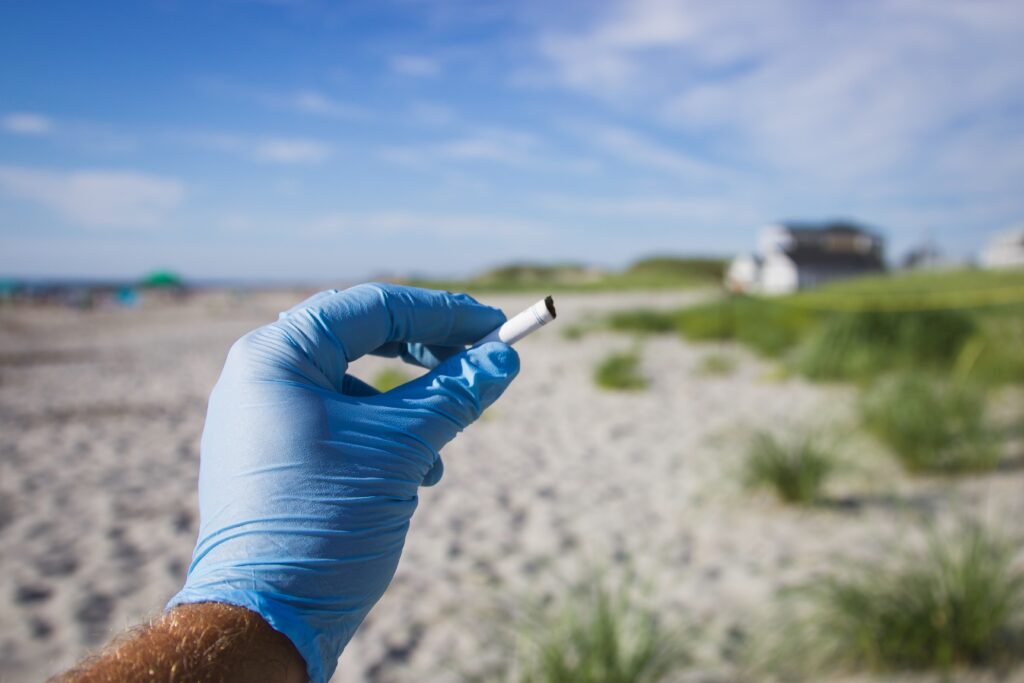OPINION: Cigarette ban on Florida beaches, parks will help environment

The Florida Legislature’s Committee on Environment and Natural Resources (ENR) unanimously approved the Regulation of Smoking in Public Places bill on March 15.
The legislation would allow local governments to ban cigarettes from Florida’s public beaches and parks to improve the state’s coastal integrity as well as help the state’s economy in the long run.
Although the bill, introduced by Sen. Joe Gruters in December 2020, would not require counties and cities to implement the ban, counties and cities would have the option to restrict cigarette smoking and disposal on the cities’ beaches and parks to better their environments.
The bill would take effect July 1 if approved by the Senate, though a date for the vote has yet to be determined.
Cigarette butts, which are the filters commonly disposed of as litter on beaches, are detrimental to Florida’s access to clean water and the health of its aquatic life. To prevent the filters from further damaging Florida’s environment and to potentially improve Florida’s economy, the Senate should vote to pass the Regulation of Smoking in Public Places bill.
An estimated 4.5 billion cigarette butts are disposed annually, according to a 2019 article published by peer-reviewed journal Science Direct, and have become the most littered item on the planet. The waste is toxic, containing over 7,000 chemicals such as lead and arsenic.
The filters are not biodegradable and can be caught by waves and pulled into the water, polluting the oceans. They are also primarily plastic, contributing to the damaging estimated 15.5 tons of microplastics on the ocean floor, according to a 2020 study published in marine science journal Frontiers.
A 2019 study by USF St. Pete graduate students found that for every pound of sediment on Tampa Bay beaches there are 600 pieces of microplastics.
The chemicals can make the water toxic for marine life. Littered filters are often found by researchers in dead birds, sea turtles and fish.
These animals are subjected to thirdhand smoke, which is formed from particles of cigarettes that seep into other objects.
The World Health Organization (WHO) released a report to bring attention to this problem in 2017, arguing that although there are some programs that work to clean beaches, they are not very effective and are on a voluntary basis.
In order to further prevent the damage cigarette waste causes, we must implement bans on smoking at Florida public beaches and parks.
There are also economic benefits to banning cigarette use on beaches and parks. The WHO suggests that banning cigarettes from public places can mitigate clean-up costs. It references the environmental effects of cigarettes as costs of smoking that manufacturers don’t feel the effects of nor do they warn their consumers.
Instead, it is the people who bear the economic effects of cigarette litter. The U.S. Environmental Protection Agency granted $9.2 million for 2020 beach protections, which is funded through taxpayer money.
“Clean-up and disposal are costs of tobacco use not currently borne by either producers or users of tobacco products, but rather by government and local authorities — an unsustainable situation,” the overview report said.
Hillsborough County’s Environmental Protection Commission had a predicted 2021 budget of $18.97 million and the Parks and Recreation department had a predicted 2021 budget of $36.96 million, both of which protect and manage Tampa’s beaches and parks.
The prospective ban on beach and park smoking can allow these budgets to be decreased and used elsewhere to better the lives of Hillsborough County citizens and improve tourists’ experiences in the Tampa Bay area.
The legislation could come off as unproductive to some as just hours before the ENR passed the Regulation of Smoking in Public Places bill the committee approved an amendment to the same legislation that would prevent local governments from banning cigar and pipe smoking at Florida parks and beaches.
Considering that cigarette butts are the most commonly littered item worldwide, banning cigarette smoking seems a positive start to weeding out environmentally damaging acts that take place at Florida’s beaches and parks.
The Senate should pass the Regulation of Smoking in Public Places bill to ensure that Florida’s beaches and parks can have improved water quality, prevent marine life from further suffering and help the state economy.







